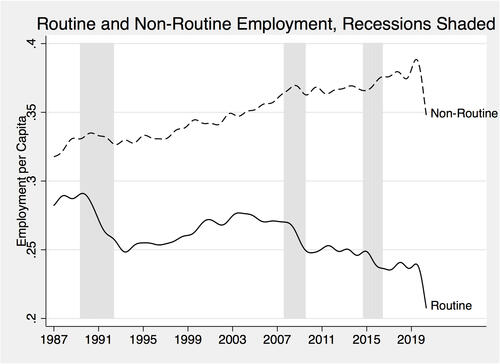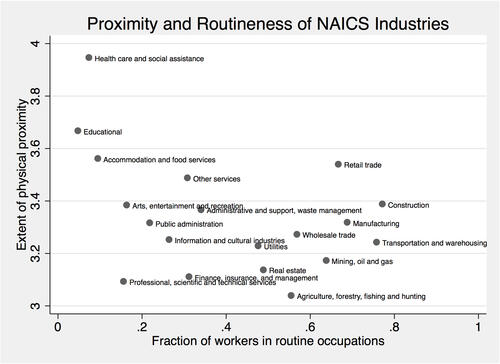
Automation will transform retail, manufacturing in post COVID-19 economy, new study says
Canada’s post COVID-19 economy will see more automation, particularly in the retail and manufacturing sectors.

Canada’s post COVID-19 economy will see more automation, particularly in the retail and manufacturing sectors.
By Media RelationsCanada’s post COVID-19 economy will see more automation, particularly in the retail and manufacturing sectors.
Professor Joel Blit of the University of Waterloo’s Department of Economics used data from the Labour Force Survey (LFS) to analyze which industries are likely to undergo the greatest automation as the economy recovers from the pandemic.
“In every recession since the beginning of the information and communications technology (ICT) revolution, the Canadian economy has undergone significant technological automation and resource reallocation. This COVID-19-induced recession will be no different, and in fact, will trigger an even bigger economic transformation due to the added health-related incentives to automate,” said Blit. “With the right policies in place, we can ensure that we emerge from the crisis with a stronger and more productive economy that benefits all Canadians.”

Blit analyzed the employment trends for routine occupations (such as manufacturing assembly or office support) versus non-routine occupations (such as management and health professionals). He found that between 1987 and 2020, non-routine jobs increased, while routine jobs declined. Moreover, the decline of routine jobs was not a steady one, but rather, all of it occurred during only 20% of that time span: during the three recessions.
COVID-19 will transform many industries. To examine which industries are likely to undergo the greatest automation, Blit ranked industries by health-related incentives to automate operations (average physical proximity of workers) and by the feasibility of doing so (fraction of workers in routine occupations). Blit concludes that a major economic transformation is most likely in the retail sector, followed by manufacturing, wholesale, construction, and transportation.

“Policies like the Canada Emergency Wage Subsidy are stifling this economic transformation and need to be phased out. Instead, we should focus on supporting workers through the transition,” said Blit. “For example, we should help retrain workers and consider transforming the current Canada Emergency Response Benefit program into a permanent guaranteed basic income.”
“Now is the time to embark on transformational change while opportunity costs are lower due to the labour market disruption,” said Blit. “The wave of solidarity and increased belief in the important role of government present an opening to reimagine our social safety net and create the institutions and programs that will ensure that all Canadians, current and future, share in the benefits of technology.”
Could Increased Productivity Be COVID-19’s Silver Lining? is forthcoming in Canadian Public Policy and available online.

Read more
English professor reflects on the innovative field of children’s literature and the challenges of writing and publishing picture books

Read more
Waterloo researcher Dr. Mikal Skuterud explains how immigration policy must shift to address productivity needs in Canada

Read more
Waterloo professor captures valuable experiential knowledge generated through interdisciplinary collaboration
The University of Waterloo acknowledges that much of our work takes place on the traditional territory of the Neutral, Anishinaabeg and Haudenosaunee peoples. Our main campus is situated on the Haldimand Tract, the land granted to the Six Nations that includes six miles on each side of the Grand River. Our active work toward reconciliation takes place across our campuses through research, learning, teaching, and community building, and is co-ordinated within the Office of Indigenous Relations.